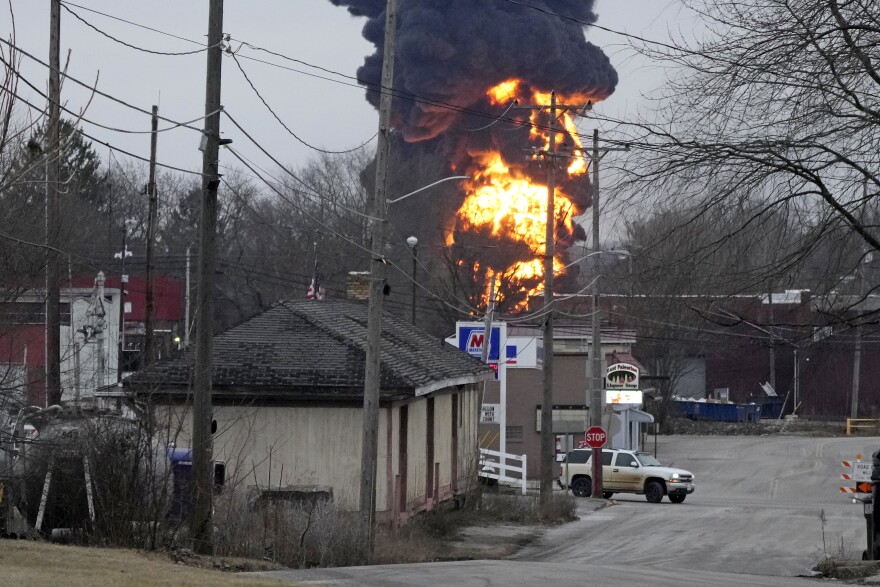My week started Sunday night when Gov. Mike DeWine issued an urgent evacuation order for East Palestine.
There was a train derailment Friday night. That, I knew. But it was unclear to me why that would cause an evacuation. The words "catastrophic tanker failure" and "deadly shrapnel" flew off the press release. What is going on?
I started work early Monday morning, talking to folks at local, state and federal agencies to find out what was happening in East Palestine. I spoke with an environmental advocate who has for years spoken out against trains carrying hazardous materials through highly populated areas. I grew up down the street from train tracks and had never considered that what was on those trains might be a public safety disaster waiting to happen.
As much as I was confused about what was going on, I can only begin to imagine what residents in East Palestine were feeling. They had to leave their homes. Some were forced to leave their pets. They didn't understand what was on the train. Had they been exposed to toxic chemicals before Sunday night? Would they ever be allowed to come home?

Many of these questions were answered Monday afternoon when the governor held a press conference. But for every question answered, more sprung up.
The train had five cars carrying the carcinogen vinyl chloride. The chemical was unstable and could explode. Officials were going to do a controlled release of the chemical before that could happen. The governor pleaded with residents to evacuate, calling it a matter of life and death. He even told the reporters covering the press conference on site to leave the area as soon as the meeting was over.
As of Wednesday, the controlled release was a success, according to the officials. Air quality is normal, per the U.S. Environmental Protection Agency. The Ohio EPA has been monitoring water quality, and although chemicals did get into the water, they reported drinking water was safe. There were no deaths or serious injuries from the train crash or the controlled release. Everyone is safe, and residents can come back home.
But you can understand residents who are skeptical. And it's clear this is something that will need to be watched for a long time to come.
As my colleague Taylor Wizner reported, doctors who specialize in environmental contamination said it's hard to tell if people will develop cancer or other health issues from exposure to the chemical. The trains were carrying approximately 500,000 pounds of vinyl chloride, and 70,000 gallons were released into the atmosphere, the soil and the water. When burned, vinyl chloride decomposes to hydrogen chloride, carbon monoxide, carbon dioxide and phosgene, according to the Agency for Toxic Substances and Disease Registry. Nasty stuff.
Then, there's the matter of public trust. Thousands of East Palestine residents will return to their homes this week, with assurances that the air and water is safe, but without assurances that this won't happen again.
What will it take for East Palestine residents to feel safe at home? Will policies regarding transparency and public health and safety in the railroad industry change?
The evacuation order has been lifted, but our reporting on this is far from over.








